At A Glance
- Seoul displays contemporary art in public spaces around the city—the murals and street art at IWHA, Apgujeong Tunnel, Hongdae, and the neofuturistic design of the Dongdaemun Design Plaza edifice can be regarded as the largest sculptural piece in the metropolis.
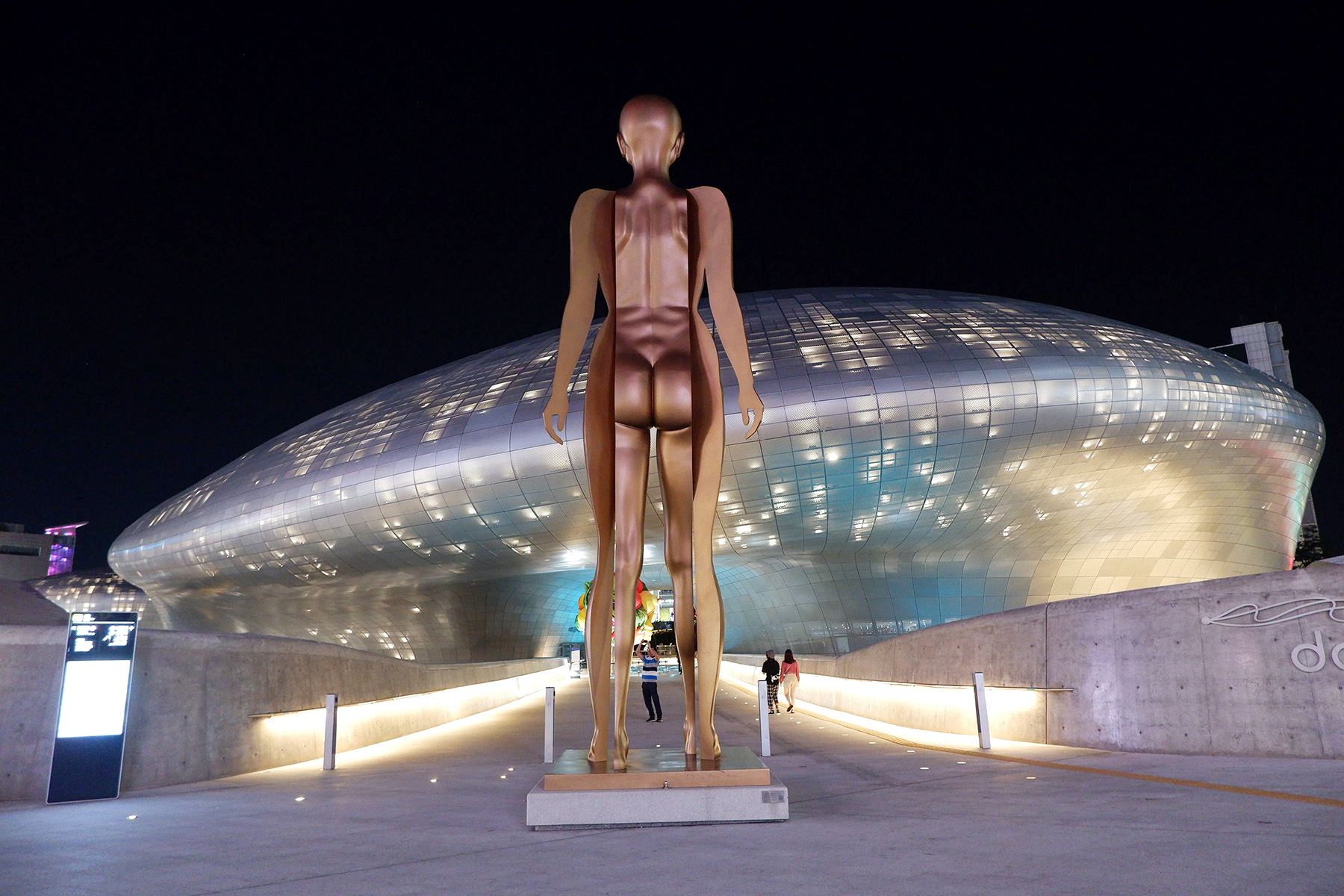
By JINGGOY I. SALVADOR
Historic palaces and quaint villages, dressing in Hanbok, coffee shop hop, Michelin stars or Bib Gourmand and street food, World Heritage Sites, K-pop and K-drama tours—South Korea can be addicting in more ways than one. Even if the passport bears multiple entry stamps, the ride on the Hallyu (aka Korean Wave) is always stoked. Who knows, a chance encounter with a K-pop star may just happen.
How about adding an art appreciation tour on the itinerary? If you don’t fancy dynastic artifacts, perhaps the modern artworks can stimulate your artistic sensibilities.
Seoul displays contemporary art in public spaces around the city—the murals and street art at IWHA, Apgujeong Tunnel, Hongdae, and the neofuturistic design of the Dongdaemun Design Plaza edifice can be regarded as the largest sculptural piece in the metropolis.
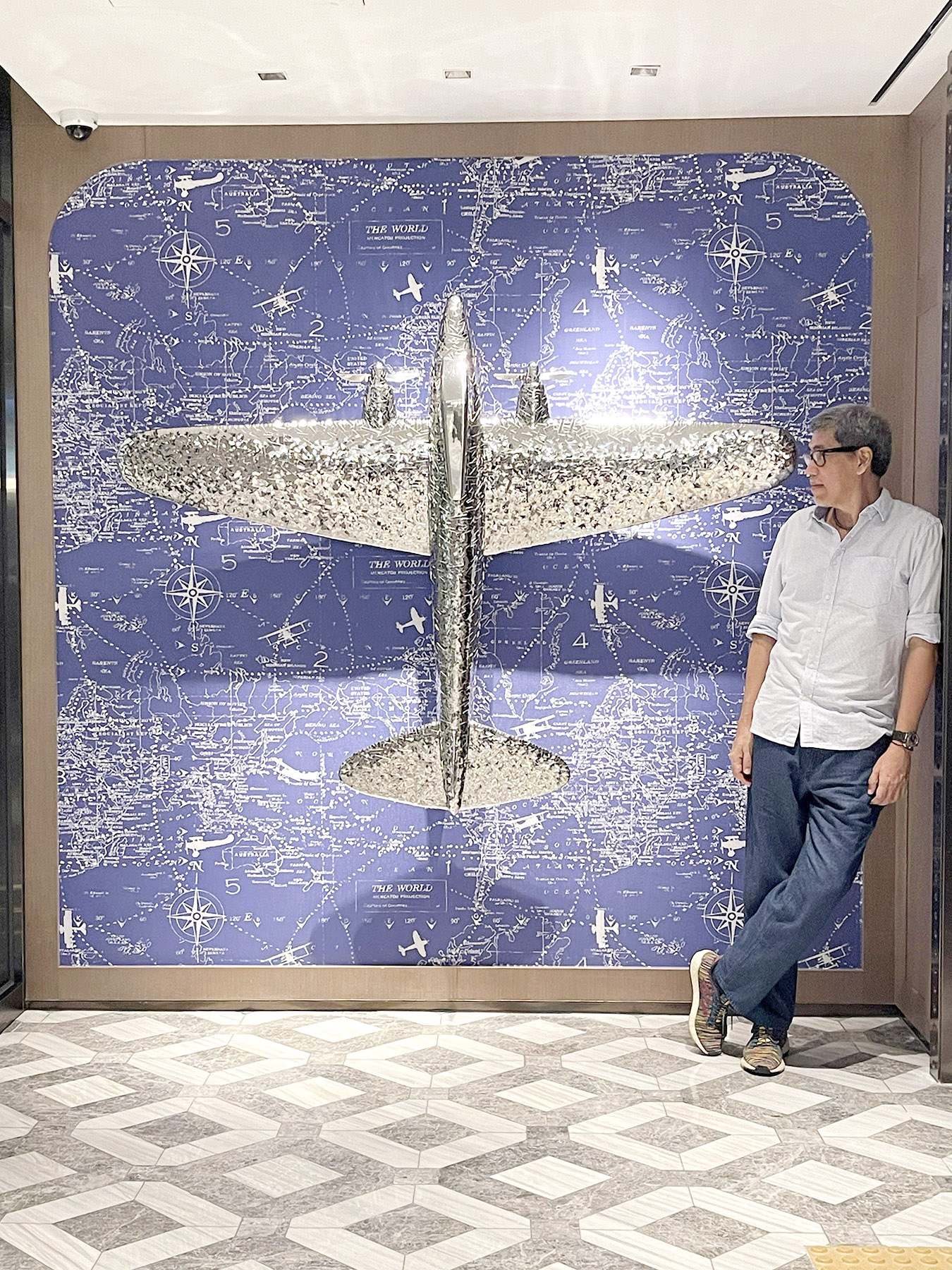
Even hotels are turning their spaces into art gallery-like, IG-worthy spots to lure in the modern-day travelers. The hospitality sector is adapting its interior design aesthetics to the new breed of social media savvy tourists. Like Moxy in the heart of Myeongdong, next to the famed shopping streets, the Marriott brand mirrors the vibe and energy of the district at its core. Its curated decor is unique and as exciting as its address—a large-scale glittery airplane at the reception area, graffiti art across surfaces and a neon-lit social hall. Hotels like Moxy can serve as the primer to countless rendezvous with Seoul’s modern art and the finale to an art-filled adventure in K-pop city.
If you want more, head to the galleries and museums dedicated to this genre. And yes, these are havens for Insta-perfect posts that can amplify influence.
From the roster of Seoul’s modern art houses, these three are worth putting on top of the must-see list. The others? What’s left on the list—and there’s a lot—will justify why returning to the city (again and again) is a must.
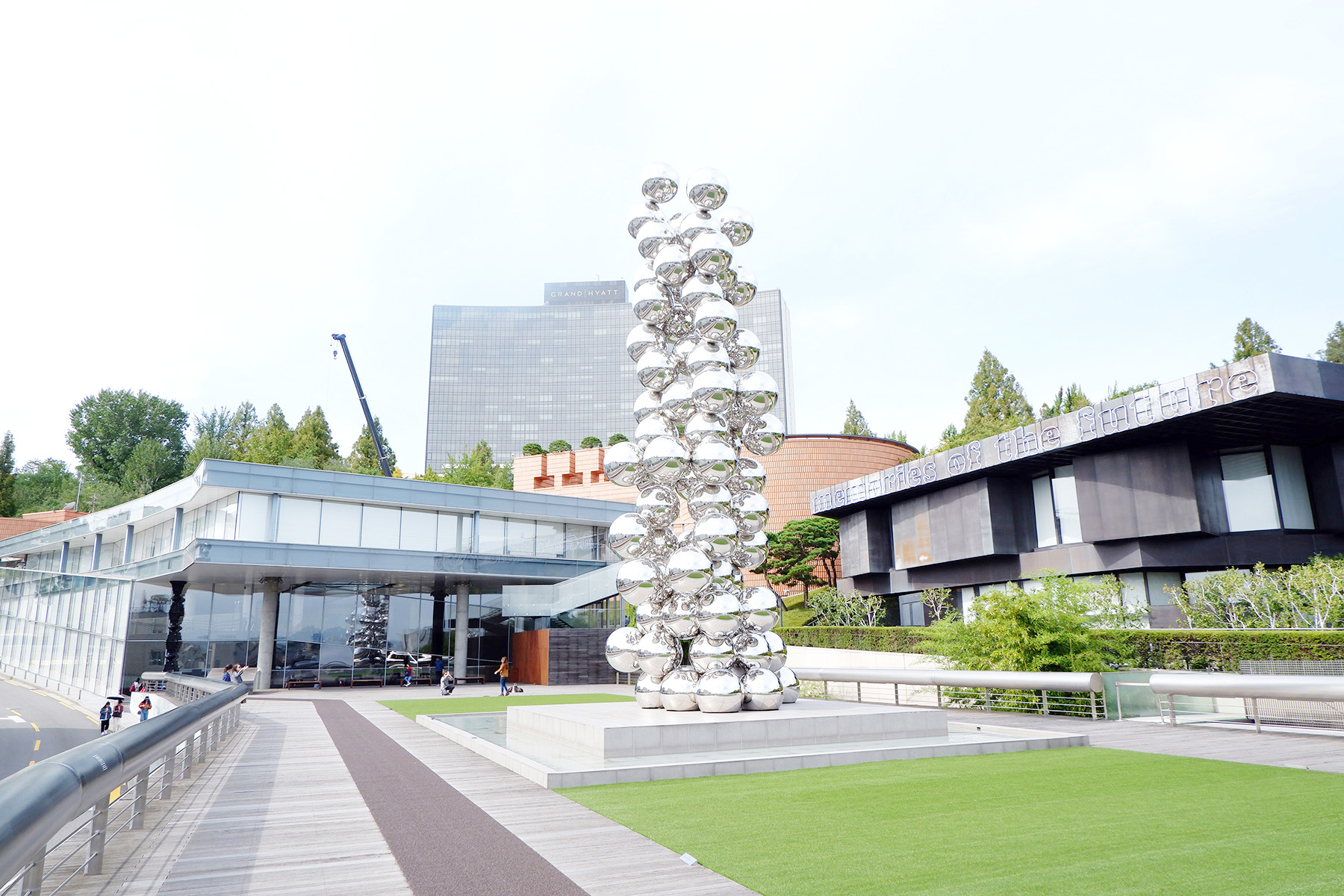
Leeum, Samsung Museum of Art. After the establishment of the Samsung Foundation of Culture in 1965, the Samsung Museum of Arts was built and opened in 2004 in Hannam-dong at the foot of Namsan Mountain. Now one of the leading museums in Korea, it holds a collection of more than 15,000 works.
Within the three buildings, designed by internationally renowned architects, are the museum spaces— Museums 1 and 2, where both modern and traditional artworks by Korean and International artists are exhibited.
Museum 2 showcases modern and contemporary artworks. Along with notable Korean artists are renowned international artists: Warhol, Rothko, Damien Hirst, Yves Klein, and others, whose works have permanent exhibition spaces. Meanwhile Museum 1 houses traditional Korean art—paintings, ceramics and metal craft, calligraphy—of which 36 pieces are designated national treasures. The museum, however, integrates a pop of modern pieces on the display halls in this wing. Why skip the chance to see those as well?
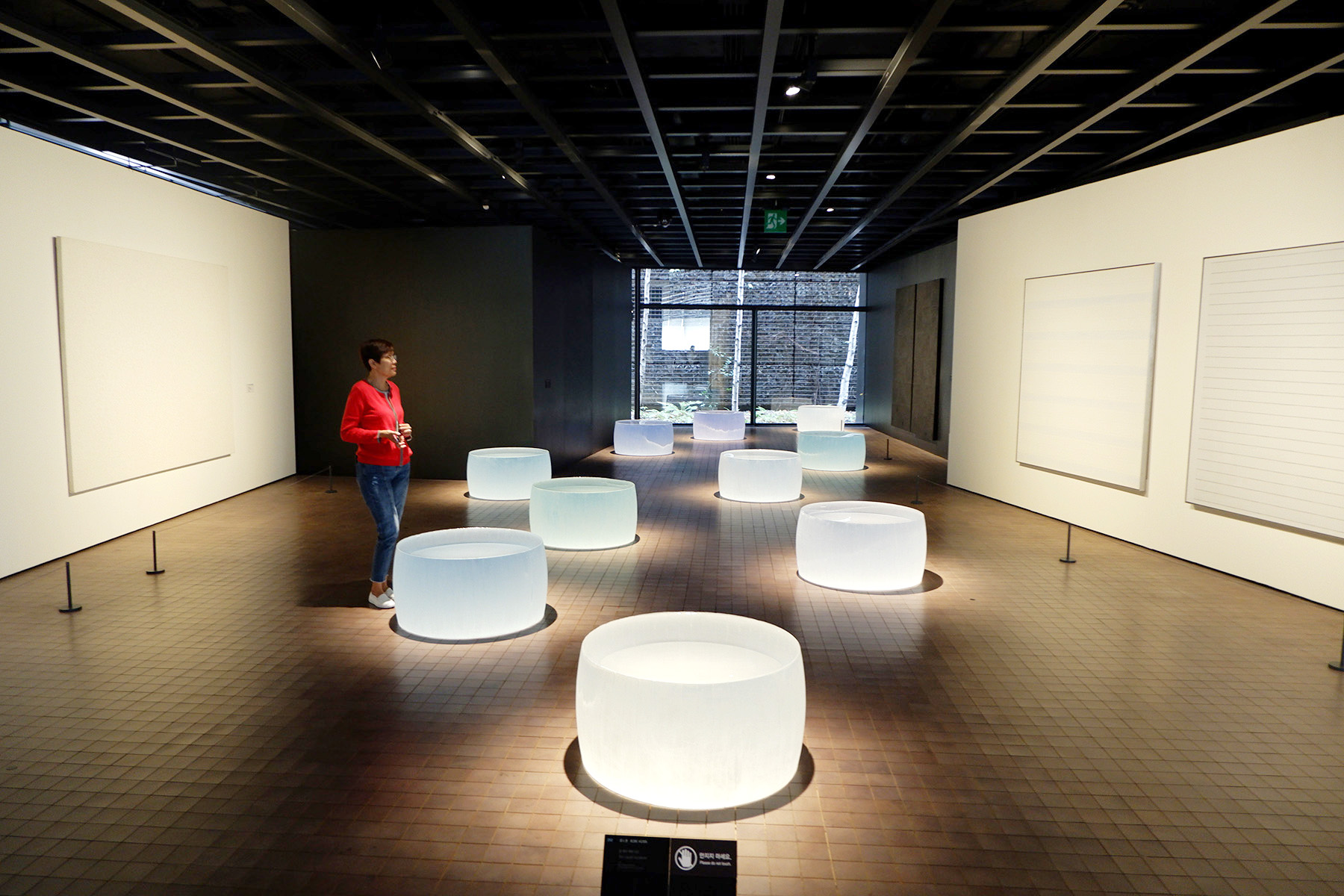
National Museum of Modern and Contemporary Art (MMCA). When it was established in 1969, the MMCA was the only national art museum in Korea that houses modern and contemporary art of different time periods by local and foreign artists. It has four branches located in Gwacheon, Deokgsugung, Cheongju, and Seoul.
The MMCA Seoul opened in 2013 converting the former Military Defense Security Command in Jongno-gu into the art space it is today. The museum design adopted the madang (yard) concept in its architectural design and successfully fuses the building’s exterior and interior to the surrounding environment. The outdoor space functions both as a leisure area and the venue for artistic events.

The museum’s collection is said to reach around 10,000 artworks. Check out the pieces of famed contemporary Korean artists Go Hui-dong, the first Korean painter to adopt Western styles. There is also Park Su-geon, a self-taught artist known for his unique painting style and colors, as well as abstract artist Kim Whan-Ki. There is a list of celebrated international artists as well, like prominent pop art movement figure Andy Warhol, Fluxus art movement founder Joseph Beuys, sculptor Jonathan Borofsky, and many more.
Why is MMCA hard to miss? It is right beside the most visited tourist attraction, the Gyeongbokgung, and for green tea foodies, the Osulloc Tea House is in the museum complex.
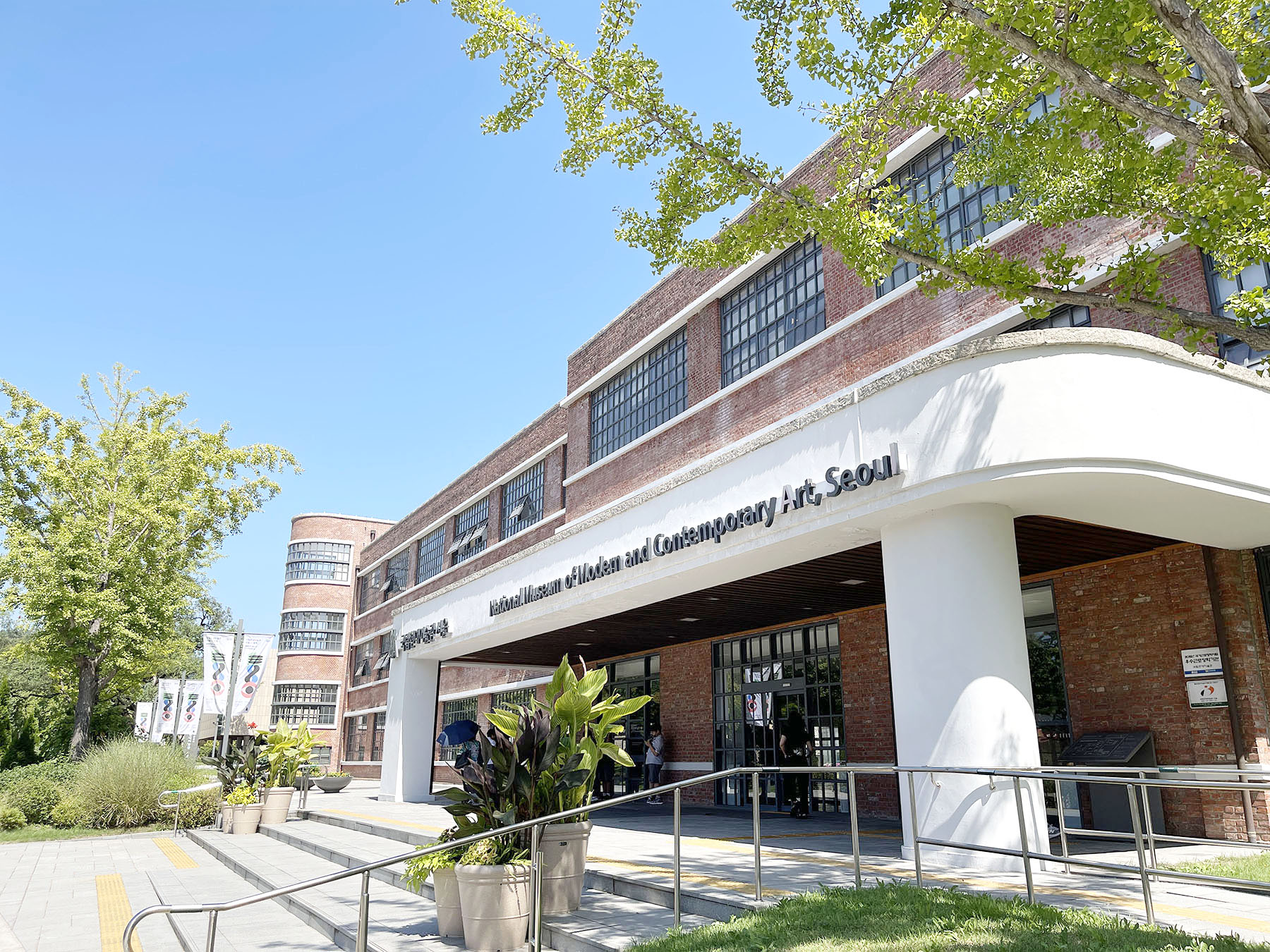
The K Museum of Contemporary Art (KMCA). Opened in 2017, the six-level museum in the heart of Gangnam-gu is the largest private museum in its district. Its aim is to engage, excite, and encourage the audience to gain appreciation and joy in contemporary art. KMCA has hosted a number of innovative art projects, including exhibitions, performances and educational programs, and will continue doing so.
One of the interesting shows on KMCA’s roster is “Geeky Land,” a series of exhibitions that started in 2017. The 2023 show is the third of the series and exhibits 1,050 artworks by 80 Korean artists. The show gives a platform for “geeks”—both the artist and the audience—for self-expression and to celebrate uniqueness.
Take an art appreciation break before or after a shopping spree, KMCA is a three-minute walk from the Apgujeong Rodeo Street.
A word of advice. It’s easy to get engrossed with the collections, especially when the museum displays art of various movements and forms— from paintings to sculptures, photography to digital— in large numbers. The bigger the museum, the more time it may take. Thus, make sure to dedicate an appropriate number of hours inside each stop. If it’s a quick trip to Seoul, squeeze in a couple of museums to visit.
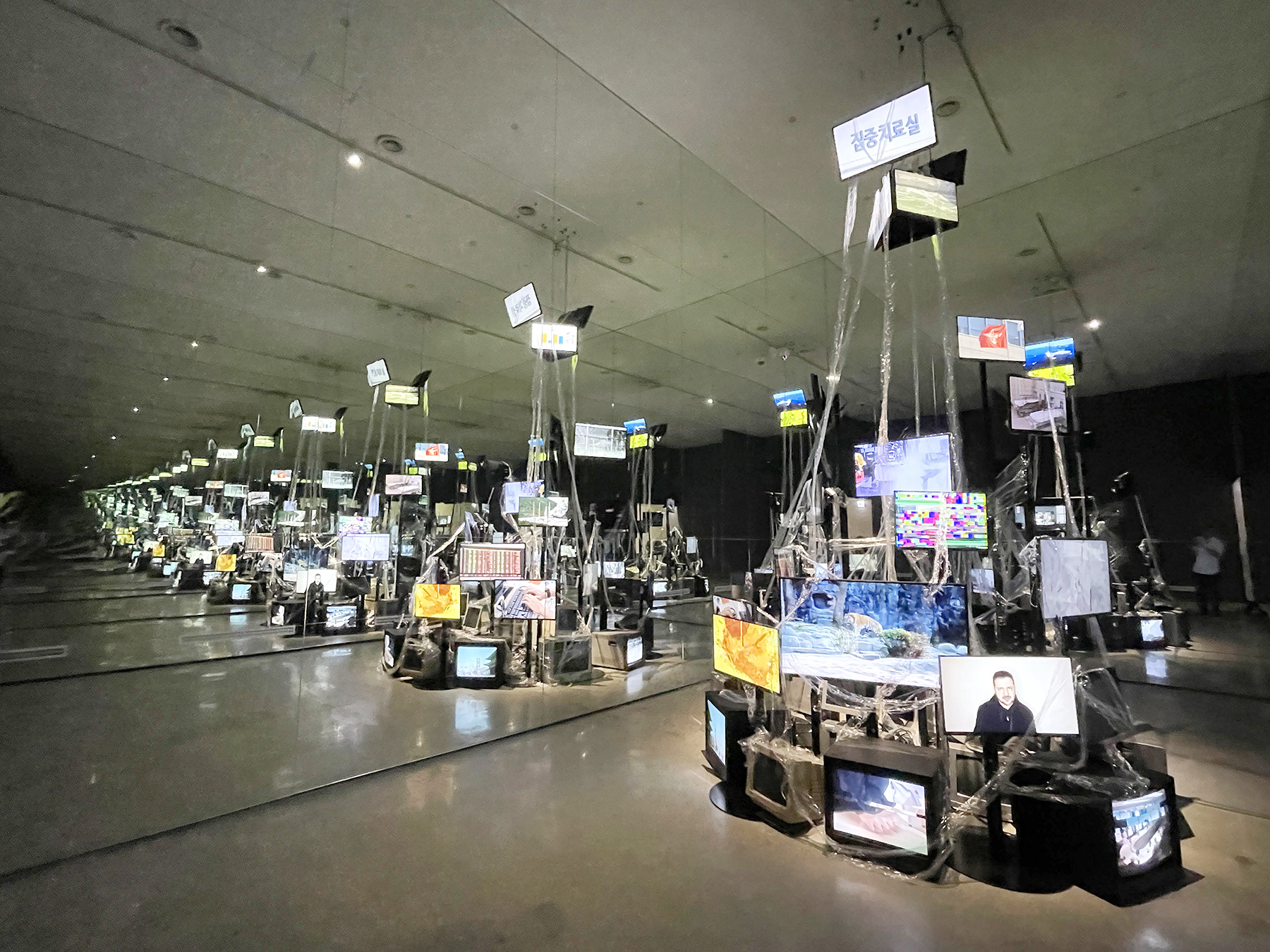
With Seoul’s efficient public transportation system, the modern art spots across the city are easy to reach. Tip: Naver Map App will suggest the best transport mode, travel time, and fare to destinations.